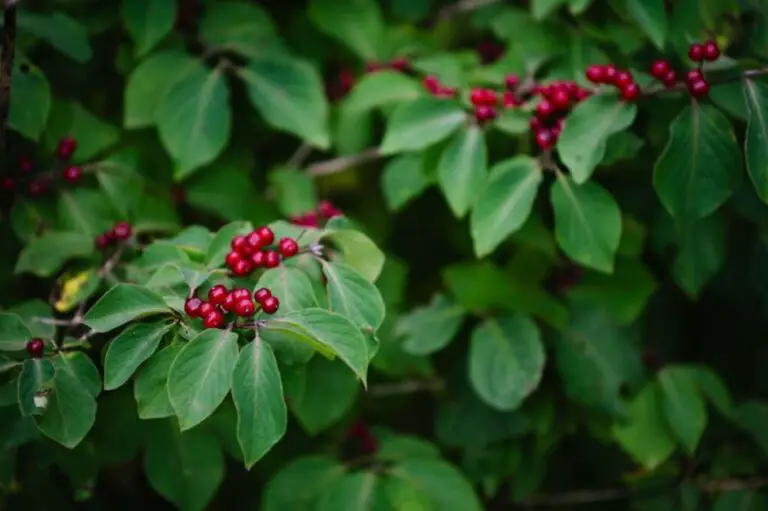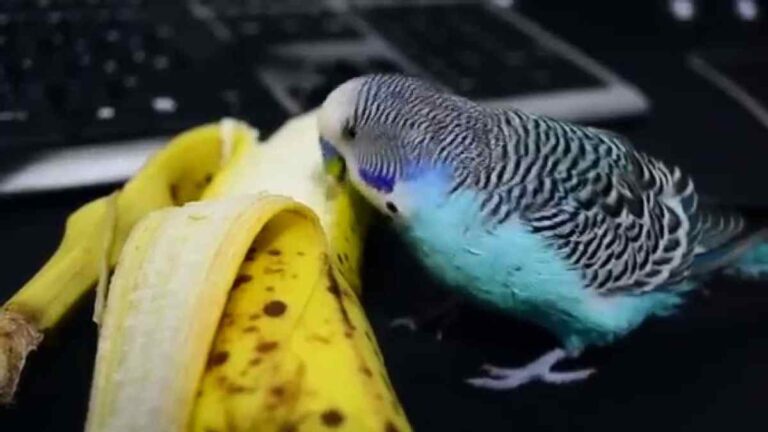Can Pigeons Eat Peanuts?
Pigeons can indeed eat peanuts, provided they are offered in moderation and properly prepared. Peanuts serve as a good source of protein and fat, contributing to their overall diet. However, due to potential risks such as choking hazards and aflatoxin contamination, precautions should be taken when introducing peanuts into a pigeon’s diet.

Ever found yourself wondering, “Can pigeons eat peanuts?” As bird enthusiasts and lovers of our feathered friends, we’ve delved deep into this intriguing question. You see, feeding our avian allies isn’t as simple as tossing them a handful of our favorite snacks.
So, let’s embark on a journey to unravel the mystery, decode the diet of these urban dwellers, and answer that burning question once and for all. We’ve got a treasure trove of information waiting for you – nutritional facts, health benefits, potential risks, and even a handy guide on safely feeding peanuts to pigeons. We promise it’s not all tough nut to crack! Stick with us and discover the dos and don’ts of feeding peanuts to pigeons. You’re in for a treat!
Key Takeaways:
- They are a rich source of protein, fat, vitamins, and minerals that can contribute positively to a pigeon’s diet when fed in moderation.
- Pigeons, being granivorous birds, can efficiently digest peanuts, and they often find them attractive due to their high protein and fat content.
- Peanuts can offer pigeons an energy boost, enhanced immunity, and support digestive health due to their nutritional profile.
- Overfeeding peanuts can lead to obesity, while whole peanuts may pose a choking hazard. Also, peanuts can sometimes be contaminated with aflatoxin, a toxic compound produced by certain molds.
- Peanuts should be unsalted and unflavored, offered in an appropriate size, and the feeding area should be clean. Monitoring pigeons when introducing peanuts is crucial.
- Baby pigeons should not be fed peanuts, moderation is key, and peanut shells, though not toxic, offer no nutritional value and are hard to digest.
What are the Nutritional Components of Peanuts?
Peanuts, often referred to as groundnuts, are a significant source of essential nutrients that can play a vital role in the health of many bird species, including pigeons. They are packed with a variety of essential nutrients that can contribute to a pigeon’s overall well-being when incorporated correctly into their diet.
Proteins
One of the key nutritional components found in peanuts is protein. In fact, they are one of the most protein-rich nuts, with approximately 25g of protein per 100g of peanuts. Proteins are vital for pigeons as they provide the essential amino acids that are fundamental for growth and maintenance of the pigeon’s body tissues.
Fats
Peanuts are also high in fats, specifically monounsaturated and polyunsaturated fats. These fats are a concentrated source of energy that can help keep pigeons healthy, particularly during colder months when their energy needs increase.
Vitamins and Minerals
Peanuts are abundant in various vitamins and minerals such as:
- Vitamin E: An antioxidant that aids in maintaining a healthy immune system.
- B-Vitamins: Important for energy production and overall metabolic function.
- Magnesium: Crucial for bone development and muscle health.
- Zinc: Essential for growth, healing, and a healthy immune system.
Fiber
Fiber is another component found in peanuts. Dietary fiber can support the digestive health of pigeons, aiding in better nutrient absorption and promoting regular bowel movements.
While the nutritional profile of peanuts seems to make them an excellent choice for pigeons, it’s crucial to remember that not all foods that are healthy for humans translate the same way for birds. Therefore, the question arises, “Can pigeons eat peanuts?”
Can Pigeons Eat Peanuts?
Yes, pigeons can eat peanuts. However, there’s more to the answer than just a simple affirmative. The question “Can pigeons eat peanuts?” isn’t just about whether they physically can eat them, but also about whether peanuts are safe and healthy for pigeons to consume.

A Natural Addition to Their Diet
Pigeons, like many bird species, have a diet that is diverse and adaptable to their environment. Their primary diet usually consists of seeds, grains, and occasionally fruits and vegetables. Peanuts, being a type of legume that behaves much like nuts and seeds, can therefore fit naturally into a pigeon’s diet.
Digestive System Compatibility
Pigeons are granivorous birds, meaning their digestive system is designed to handle grains and seeds. Since peanuts, despite technically being legumes, are quite similar to nuts and seeds in terms of their composition, pigeons can digest them quite efficiently.
Attractiveness to Pigeons
Pigeons also seem to have a particular liking for peanuts. The high fat and protein content in peanuts makes them an appealing and rewarding food source for these birds, providing them with a dense source of energy.
However, while it’s clear that pigeons can eat peanuts, it’s essential to know that peanuts should not make up the majority of their diet. Just as with any other species, a balanced, varied diet is crucial for pigeons to ensure they receive all the nutrients they need.
Health Benefits of Peanuts for Pigeons
Peanuts, given their rich nutritional profile, can provide several health benefits to pigeons. However, they should be offered in moderation as part of a balanced diet.

Protein Source
Peanuts are an excellent source of protein, which is essential for the growth and repair of body tissues in pigeons. It is particularly beneficial during the breeding season, when the need for protein increases due to the demands of egg production and chick growth.
Energy Boost
The high fat content in peanuts provides a concentrated source of energy. This can be particularly helpful during colder months when pigeons require more energy to maintain their body temperature.
Immunity and Health
Peanuts are rich in various vitamins and minerals, such as Vitamin E, B-Vitamins, Magnesium, and Zinc, which support the overall health and immunity of pigeons.
Digestive Health
The fiber content in peanuts aids in digestion by adding bulk to the diet and promoting regular bowel movements.
Read also: Can Pigeons Eat Chocolate?
Potential Risks of Feeding Peanuts to Pigeons
Despite the benefits, there are also potential risks involved in feeding peanuts to pigeons. Understanding these can help ensure that peanuts are introduced into their diet safely.
Overfeeding and Obesity
Overfeeding peanuts can lead to obesity and associated health problems in pigeons due to their high fat content.
Choking Hazard
Whole peanuts can pose a choking hazard, especially to younger pigeons.
Aflatoxin Contamination
Peanuts can sometimes be contaminated with aflatoxin, a toxic compound produced by certain types of mold. This can be harmful to pigeons if ingested.
Read also: Are Pigeons Domestic Birds?
How to Feed Peanuts to Pigeons Safely
Feeding peanuts to pigeons requires some precautionary steps to ensure their safety and health. Here are some guidelines to follow:
Moderation is Key
Peanuts, despite their nutritional benefits, should not constitute the majority of a pigeon’s diet. They should be offered as a treat or supplement, in moderation.
Choose the Right Peanuts
Always opt for unsalted, unflavored peanuts. Salt and other seasonings can be harmful to pigeons. Additionally, try to choose peanuts from reliable sources to reduce the risk of aflatoxin contamination.
Proper Size and Preparation
Peanuts should be offered in a size that is appropriate for the pigeon to manage. Whole peanuts may need to be chopped or crushed, especially for smaller pigeons, to prevent choking.
Monitor the Pigeons
Keep a close eye on the pigeons when you first introduce peanuts. This helps to ensure they are not having any difficulty eating them and that they are not showing any signs of distress.
Clean Feeding Area
Always provide food, including peanuts, in a clean feeding area. This prevents the growth of harmful bacteria or mold. Leftover peanuts should not be left out for long as they can attract pests or become a source of fungal contamination.
Through a carefully managed approach, feeding peanuts to pigeons can be both safe and beneficial. It’s all about balance and careful observation of the pigeons’ behavior and physical condition.
Read also: How to Attract Pigeons
Final Thoughts
We’ve journeyed through the world of peanuts and pigeons, exploring whether these nuts (technically legumes, but we won’t quibble) have a place in a pigeon’s diet. We’ve tackled nutritional breakdowns, dived into health benefits and potential risks, and even offered advice on how to feed these tasty morsels to our feathered friends safely.
And what’s the final verdict? Yes, pigeons can indeed enjoy peanuts! But remember, it’s all about moderation and careful preparation. Peanuts should be a supplemental treat in a pigeon’s diverse diet, rather than the main event.
In the end, we hope this exploration has not only satisfied your curiosity but also given you valuable insights into pigeon care. Here’s to making our cohabitation with these urban dwellers even more harmonious. So the next time you find a pigeon peering at your peanut snack, you’ll know just what to do. Happy bird feeding!
Frequently Asked Questions
1. Can pigeons eat peanut butter?
Yes, pigeons can eat peanut butter in small amounts. It’s essential to offer unsalted and unsweetened peanut butter, and you can spread a small amount on a flat surface or mix it with birdseed for them to enjoy.
2. Are there any other nuts that pigeons can eat?
Pigeons can eat a variety of nuts like almonds, walnuts, and cashews in moderation. Make sure they are unsalted and unsweetened and provide them as an occasional treat rather than a staple food.
3. Should I feed pigeons peanuts during all seasons?
While pigeons can eat peanuts year-round, it’s particularly beneficial to offer them during colder months as a source of extra energy to help them maintain their body temperature.
4. Can peanuts attract other wildlife or pests to my garden?
Yes, feeding peanuts to pigeons can attract other wildlife like squirrels and even rats. To minimize this, use bird feeders designed for pigeons and clean up any uneaten peanuts promptly.
5. How can I tell if a pigeon is choking on a peanut?
If you suspect a pigeon is choking on a peanut, observe its behavior. Signs of choking may include exaggerated neck stretching, open beak gasping, and distress. If you see these signs, it’s essential to intervene carefully or seek help from a wildlife rehabilitator.

Martin Cooper
Hello and welcome! I’m an avid bird enthusiast, dedicated to observing, understanding, and documenting our feathery friends. I hope my passion and knowledge inspires your own avian admiration! Join me as we soar into this fascinating world.






